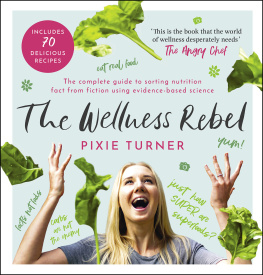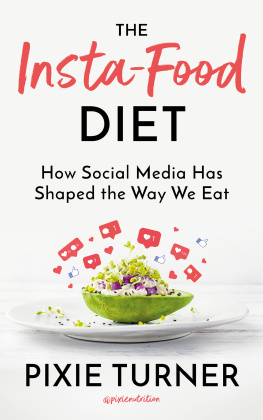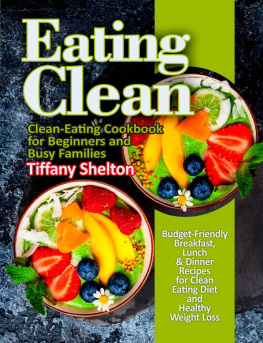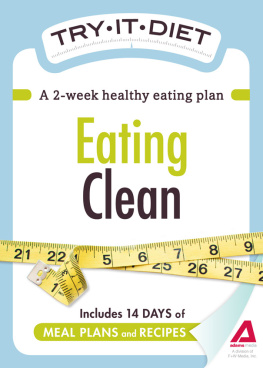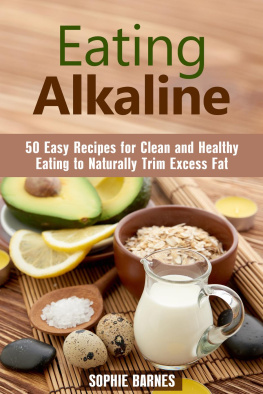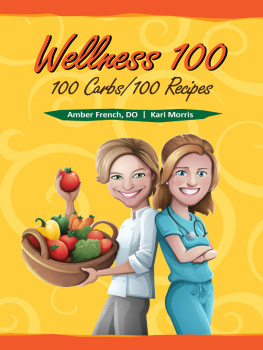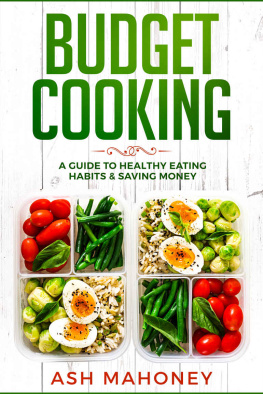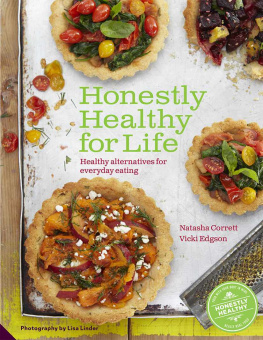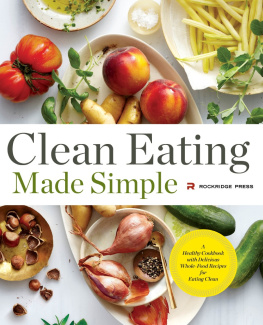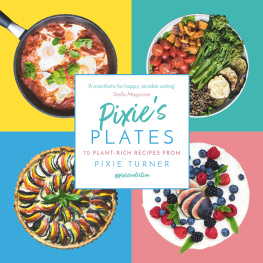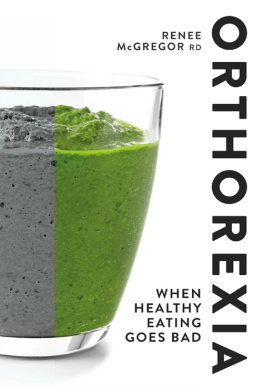THE WELLNESS REBEL
Pixie Turner
www.readanima.com
Fed up with bloggers with no qualifications telling you what to eat?
Had enough of all the new year diets?
Confused about all the conflicting nutrition messages in the media?
Then this book is for you.
Fats vs carbs, gluten-free, detoxes, superfoods, sugar-free... its no wonder were confused. Time to clear through the nutribabble, and enjoy food again.
C ONTENTS


Conclusion/
Enjoy Your Food


Lets kick things off on the right foot to avoid any awkward confusion later on: this isnt a diet book, and its not a clean-eating bible, transformation plan or miracle cure. Its about science, the science of healthy eating in my eyes, arguably the best kind of science as it applies to us every day of our lives. This book isnt just the ramblings of yet another health blogger; Im a trained biochemist (BSc) and nutritionist (MSc) registered with the Association for Nutrition, and Ive used my blog Plantbased Pixie to chart my journey from unhealthy student to restrictive clean-eater to scientist and sceptic. Ive learnt a lot since I started my blog four years ago, and Id like to share this information with you in the hope that you find it interesting, and hopefully avoid some of the mistakes I made.
I was lucky enough to grow up in an amazing family where my mother cooked for us almost every day. While most children around me didnt regularly sit down to eat with their parents at the dinner table, my mother insisted on maintaining this German family tradition. Growing up, I ate three meals a day, every day, with my entire family, apart from school lunchtimes. Not only that, but we had a beautiful garden where my mother grew everything from apples and pears to carrots, artichokes and four different colours of tomatoes. Every summer and autumn wed have an abundance of fresh produce that wed pick every morning, which was both a blessing nothing beats picking an apple straight off the tree and taking a bite and a curse having to eat green beans twice a day for weeks on end because we had planted too many. I was even allowed to bring my own packed lunch to school (made by my mum) years before anyone else in my year because my mother was concerned about the standard of the food. On the one hand, this was a very caring gesture, but on the flipside, maybe it was a little controlling. Control often seems to be a strong contributing factor when it comes to disordered attitudes and behaviours around food something I was later to discover for myself.

THE WELLNESS DAYS
I was an incredibly shy child, and being thrown into the new environment of university took my shyness to a new level. I turned to frozen ready meals in an attempt to both avoid cooking in the kitchen around strangers who might criticise me, and to control my food and calorie intake. University brought out all the anxiety around food that had been building for some time, and fitted in well with my perfectionism and an inherent fear of failure that had followed me around for as long as I could remember.
I knew this wasnt the healthiest way to eat, but my shyness won over my desire to be healthier. It wasnt until I had a blood test in my second year of uni, which revealed I had high cholesterol, that something switched. My grandmother had very high cholesterol and type 2 diabetes, and my fathers cholesterol was dangerously high, too, which led him to start taking statins (drugs that help to keep cholesterol levels under control). As a result, it was suspected that my high cholesterol was due to familial hypercholesterolaemia, a genetic condition affecting one in 250 individuals in the UK [], and which I had possibly inherited from my father thanks, Dad!
I was only 19 at the time, which is very young to start taking statins, so I was given a year to make some lifestyle changes if I wanted to, but was warned that if my condition was genetic any changes would likely only have minimal effect. Naturally, I turned to Dr Google where I was bombarded with the faces and blogs of wellness gurus who had faced health scares, changed their diet and seen massive success. They were beautiful, thin, happy, glowing, and promoted health rather than restriction, though they also seemed to be cutting out a variety of food groups. Naturally, I couldnt resist the charisma, and I fell for it completely. I flitted from one bloggers ideas to the next, first cutting out all refined sugar and eating more paleo-style, then going vegetarian, then full-on vegan, gluten-free, refined-sugar-free and soy-free. Basically, if there was a diet to be tried, I probably tried it.
It was at this point that I started sharing my food on Instagram as a personal food diary, and following many other accounts who ate the same way I did in order to gain inspiration on what to eat now that so many food groups were off the menu. Ill admit I went into it completely unprepared, but reassured by the many people I found online who were doing the same thing. And Ill also admit that in some ways these diets did help. On the one hand, I went to have another blood test a year later and my cholesterol was and has since stayed at a borderline normal/almost high level, but on the other hand, I was probably the most boring student you could imagine. My life had started to completely revolve around eating: I didnt have much of a social life, I avoided going out for meals with friends, and going home to visit my parents was an exercise in tolerance for all parties involved. My relationship with food, although appearing healthy on the outside, was definitely not ideal, and the more food groups I cut out to make my diet cleaner, the more anxious I became. Ironically, as my social life dwindled, my online social circle increased, thanks partly to Instagram, but also thanks to starting a blog to share my recipes, in classic wellness blogger fashion.
All these factors food anxiety, unnecessary restriction, lack of social life, obsession with purity of ingredients are the hallmarks of orthorexia. Orthorexia nervosa is a form of disordered eating categorised by an unhealthy, potentially dangerous obsession with eating healthily. Its an as-yet-unrecognised eating disorder thats well known in the media and with a growing body of research. Im happy to stand up now and say, I had orthorexia, and let me tell you, it was not fun. And, because its under the guise of trying to be healthy, people are much less likely to pick up on it; in fact, theyre more likely to encourage you, because trying to be healthy is seen as a good thing. Which, of course, it is, but not when it causes psychological or physical damage. Despite seeming super healthy, I still didnt have amazing skin (still dont, seems to be something Im cursed with), still wasnt happy with the way I looked and often felt tired and run-down. I never had blood tests to confirm it, but it was likely due to low iron or B12 levels from my super healthy diet.

